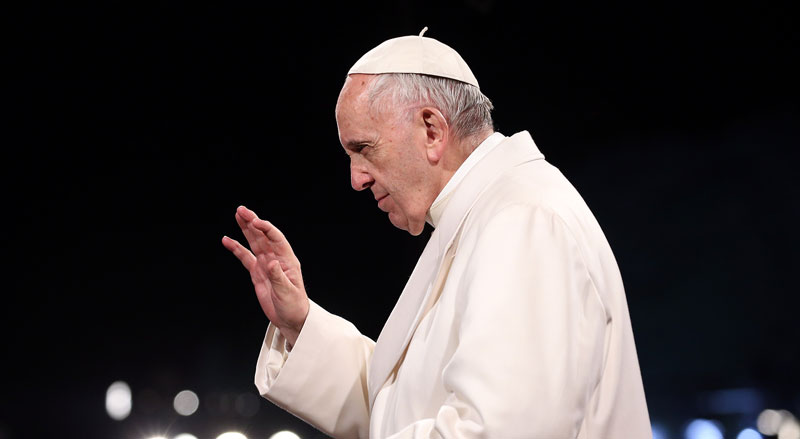Taking Their Case to Israel
Southland rabbis are among a delegation voicing concernover the proposed conversion law
By Naomi Pfefferman, Senior Writer

Rabbi John Rosove.
The urgent telephone call came on Monday, Oct. 20, for Rabbi JohnRosove of Temple Israel of Hollywood. A crisis was brewing in Israel,said Rabbi Ammiel Hirsch, head of the Association of Reform Zionistsof America.
Specifically, Hirsch asked Rosove to fly with him to Israel tojoin an emergency delegation of some 15 mostly Reform rabbis fromCanada and the United States. Among them were Rabbi Haim Dov Beliakof Temple Ner Tamid of Downey; Rabbi Emeritus Haim A. Asa of TempleBeth Tikvah in Fullerton; and Rabbis David and Jacqueline Ellenson ofLos Angeles, who are on sabbatical leave in Israel. The rabbis wereto convey a caveat.
Prime Minister Binyamin Netanyahu was about to send to the Knesseta conversion law that would prevent non-Orthodox rabbis fromconducting conversions in Israel. It was the latest in the continuingconflict between the Orthodox establishment in Israel and Reform andConservative Jews, who dominate the Jewish scene in the United Statesbut constitute only a small minority in Israel. Agovernment-appointed commission had failed to work out an acceptablecompromise on the conversion bill.
“Our delegation’s message was that the bill would divide theJewish people and severely erode American Jewish loyalty to Israel,”Rosove says.
The delegation’s whirlwind, 28-hour trip “was like flying into theeye of a storm,” Rosove says. The first surprise came at Ben-GurionAirport, where reporters from ABC, CNN and every Israeli TV stationdescended upon the rabbis. Some 50 Israeli supporters also greetedthe Americans, waving placards and singing “Shalom Aleichem” and “AmYisrael Chai.” The attention was “startling,” Rosove says. But aneven bigger surprise awaited the visitors.
A bus carried the rabbis directly to the Prime Minister’s Office,where they would engage in an intense, 90-minute meeting withNetanyahu and Finance Minister Yaacov Neeman, the chair of thegovernment-appointed commission. It was past 9 p.m., but passionatediscussion soon filled the Cabinet room.
Netanyahu wanted the rabbis to convince Reform and Conservativeleaders to postpone the equal-rights lawsuits they had threatened tobring to the Israeli Supreme Court. He said that he’d withhold theconversion legislation — so long as the Reform and Conservativeleaders signed onto a new compromise. He outlined the details, butthe rabbis were unimpressed. “The bottom line was that Orthodoxywould still govern all life-cycle affairs in Israel, and we felt wewere being snowed,” Rosove says.
During a late-night conference call, the leaders of world Reformand Conservative Jewry were told of the meeting and rejected the newcompromise. When the news hit the media the next day, “we became theheavies,” Rosove says.
The delegation’s first meeting, with Industry and Trade MinisterNatan Sharansky, went poorly. Sharansky, head of the YisraelBa’Aliyah party and part of the Netanyahu coalition, “was absolutelyfurious with us,” Rosove says. “He blamed us for missing an historicopportunity.”
Neeman, during another morning meeting, “kept slamming his fist onthe table,” Rosove says. “He said, ‘This is the saddest day of mylife.’ He said we’d caused the greatest tragedy to hit the Jewishnation since the destruction of the Second Temple.”
“We were struck by his hyperbole,” Beliak says.
Harsh words from the leader of The Third Way party followed, andleaders of Likud and even the liberal Meretz party thought that theAmericans had made a tactical mistake.
“Bobby Brown, Netanyahu’s Diaspora adviser, followed useverywhere,” Rosove says. “But nobody bothered to apologize that achief rabbi had called all Reform rabbis a bunch of ‘clowns.'”
The crisis was finally averted on Oct. 28, when Israeli PresidentEzer Weizman called on non-Orthodox leaders to postpone theirlawsuits — at least until January 31 — while Neeman’s commissionworks on a new compromise. One reason Reform and Conservative leadersagreed, Beliak says, is because “for the first time, a representativeof the chief rabbinate said he was willing to participate in thediscussion.”
Meanwhile, the media spin on the delegation was less thancomplimentary. Ha’aretz called the visitors “15 confused rabbis whohad come to Israel…to defend their besmirched honor.” The New YorkTimes indicated that the rabbis had “backed off” from their lawsuitsbecause they were “smarting from harsh criticism.”
Orthodox Rabbi Elazar Muskin of Young Israel of Century City spokeon KCRW’s “Which Way L.A.” and said that Americans “should notdictate to the Israelis what they should do.”
“This whole issue is not about who is a Jew but who is a rabbi,”Muskin told The Jewish Journal. “It’s the demand of Reform andConservative rabbis to be recognized by the Orthodox rabbinate, whichis not going to happen.”
Others accused the delegation of trying to topple Netanyahu’sregime. But Beliak and Rosove disagreed. “Our goal was not to meddlein Israeli politics but to prevent the Jewish state from alienating90 percent of world Jewry,” Beliak says.





















 More news and opinions than at a Shabbat dinner, right in your inbox.
More news and opinions than at a Shabbat dinner, right in your inbox.